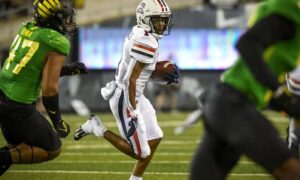
As the deadline of Sept. 9 approaches, it appears the final regulations for sports betting in Arizona might be released soon. The AZ Dept. of Gaming, on Wednesday, conducted the final web call to collect comments from stakeholders on the proposed rules.
A number of prospective partners discussed various topics with members of the Department. One specific issue, on which several interested parties expressed their views, was clarified by the Department’s comment members over the phone.
Final say on sports betting regulations in Arizona
On Wednesday, between 9 a.m. and just before 10 a.m. Pacific Time, various representatives from the Department of Gaming took part in the Google Call. The main speakers representing the department were Warren Nichols, the Assistant Director of Gaming Compliance, and James Stipe, a lawyer from Phoenix.
Among those who responded and made inquiries during the closing hour included:
- Representing the Arizona Coyotes, Andrew Diss
- Vice President of Government Affairs for the Arizona Diamondbacks, Amilyn Pierce
- DraftKings Sportsbook’s Manager of Government Affairs, Kevin Cochran
- Sara Dalsheim, representing the San Carlos Apache Tribe,
- Director of Government Affairs at FanDuel Sportsbook, Andrew Winchell.
- Jerry Linum holds the same position as Winchell at BetMGM Sportsbook.
- Major League Baseball’s attorney, Leonardo Villalobos
The issue of how many net skins an owner can contract for emerged as perhaps the most controversial aspect of the rules when it was first raised. Many former employees voiced their views and sought guidance from Stipe on the subject.
Completely disregard hides.
Pierce reiterated the D-Backsquo’s stance that the law only permits one complexion per operator. She further mentioned that the MLB team believes it’s possible to interpret the law to allow both online and offline betting with the same entity.
Pierce also stated that the baseball team is open to co-branding its sports betting products, incorporating the name of its partner, Caesars Sportsbook, on the app and website. She concluded her remarks by noting that NASCAR and the PGA Tour share the same views.
Dalsheim, the second person to comment on the subject, had a unique perspective. She defended the Tribe’s stance that the enabling law allows for multiple skins and requested the Department’s clarification. She specifically sought an explanation on the difference in the statute’s terms «platform» and «system».
Stipe’s comments primarily focused on those exact terms. He proposed that those who answered the call should completely stop using the term «skin.» Stipe then added that the Department would refrain from using the term «body.» They could instead use «platform» and «system» as replacements, as per the law.
Stifle ultimately declared that the law is unambiguous. He noted that event bookmakers are allowed a maximum of two programs, but in reality, they only have one. He further elaborated on the differences between the two terms in this context. Considering the product from the viewpoint of a sportsbook’s back-end and the perspective of the customer is advantageous.
One method, two platforms
Stipe asserts that websites are not designed to serve as sub-licenses. He emphasized that each distributor is only granted one system. The term «gaming», as used, typically refers more to the customer-interactive aspect of a casino, similar to the Dept.
Therefore, unless one of the two just shared its branding with the other, TPC Scottsdale would not have the ability to grant permission to both DraftKings and another competitor of DraftKeys, such as BetMGM, to operate under their license.
Pierce & rsquo’s suggestion for co-branding seemed more compatible with the idea of two platforms. Provided both sportsbooks operate on the same system, the Diamondbacks have the option to name their physical sportsbook and their website book as Caesars Sportsbook. Nevertheless, there is no requirement to separate the platforms into online and retail divisions.
Hence, under the suggested rules, each licensee would still only get one as per the conventional interpretation of the terms «skin». However, an owner has the option to select a different program if they prefer. This language was not the only noteworthy one during Wednesday’s communication.
Basic information, registration allocation, and taxation percentages.
Diss raised the issue of the tax rate in the latest rules draft, questioning why the rate for online hold is 2% higher than that of retail revenue. This came as a surprise to the Coyotes who expected the tax rate to match the lowest rate paid by Arizona tribal casinos in their revenue share with the state.
Nichols explained that the Department had studied various jurisdictions and considered the lower operating costs of online sportsbooks compared to their physical counterparts. Villalobos conveyed his clients’ belief that casinos should clearly specify that all proposed bets, no matter when they are made, must be settled using standard club data.
Limun made a contribution to the standard club data, specifically requesting clarification on what the terms «& ldquo» and «commercially reasonable terms» mean in the context of that data. Winchell and Cochran reiterated this statement.
Dalsheim inquired about when the Department’s plan for distributing the 10 licenses assigned to tribal casino operators would be disclosed, rounding off the discussion on Arizona sports wagering regulations. Nichols responded by expressing his expectation to deliver the information shortly after the post period concludes on Wednesday at 11:59 PT.
The final version of the guidelines may soon be available. If so, gamblers in Arizona could potentially start placing legal bets at brick-and-mortar casinos within a fortnight.







